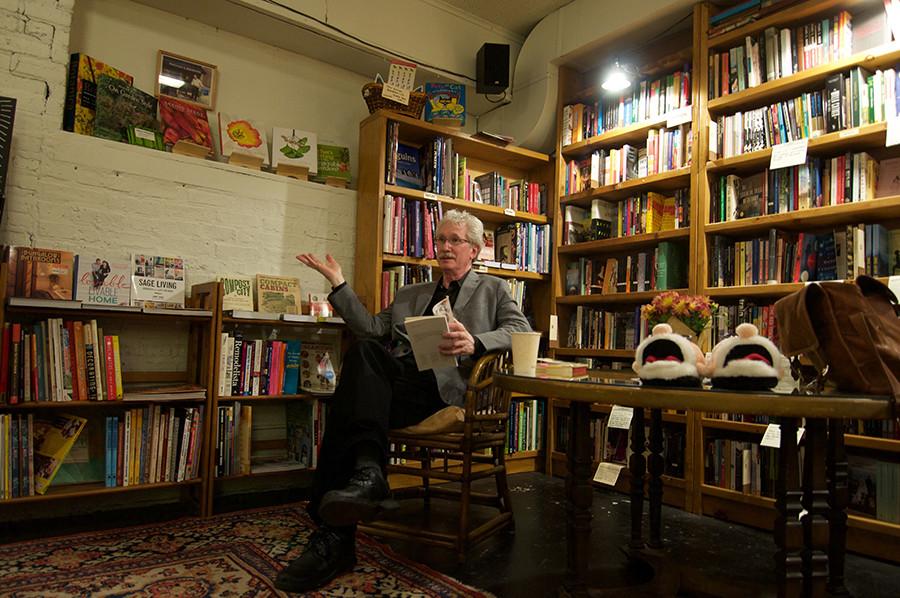NU professor discusses poetry at Bookends and Beginnings
Lauren Duquette/The Daily Northwestern
During a discussion of his newest book, Northwestern professor and poet Reginald Gibbons focused on the nuances of poetic language. Gibbons, a National Book Award finalist, spoke Thursday at Bookends and Beginnings.
October 9, 2015
Northwestern professor and poet Reginald Gibbons discussed the unique nature of poetry as an expressive medium Thursday evening at Bookends and Beginnings.
Gibbons, the director of NU’s Center for the Writing Arts, read several passages of his book titled “How Poems Think” at the bookstore, 1712 Sherman Ave., to more than 30 people.
Gibbons — who teaches poetry, fiction and literature courses — explored the meaning behind his poetic metaphors and the origins and significance of various words in the poems included in his book.
“It’s a book about how poems think…in ways that are not found in other kinds of text,” Gibbons said.
Gibbons said the book was inspired by his experience writing and studying poetry. His newest work explores ways of poetic thinking that are not commonly considered in the study of literary devices, he said.
The book analyzes works by poets ranging from Shakespeare to Gwendolyn Brooks. While reading from a passage in his book, he spoke about the origin and use of specific words, often pausing his speech to remark at certain ones.
Those in attendance were not only Gibbons’ friends and co-workers but also those who are passionate about poetry and the author’s works.
Ann Hudson, an Evanston resident and self-described poet, said Gibbons’ talk piqued her interest in the difference between how humans think versus how they translate thoughts in writing.
“It’s the kind of talk that makes you interested in reading the book,” Hudson said. “I’m interested in how the mind moves, that that is not necessarily how the mind moves on the page.”
Jeff Garrett, a former NU librarian and partner at Bookends, said the bookstore hosted the event because they wanted to draw attention to local poets.
In addition to “How Poems Think,” Gibbons is the author of nine volumes of poetry, a novel and has translated and edited numerous other works. One of his works was a finalist for the National Book Award in poetry.
“He is just a very profound thinker of language and reality,” Garrett said.
Email: norashelly2019@u.northwestern.edu
Twitter: @noracshelly



